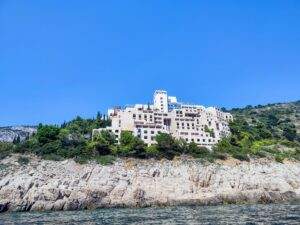The Darker Side of Athens: Exarcheia
Exarcheia is a district of Athens known for its radical politics, often referred to as the Anarchist Quarter. The area is a melting pot for outsiders- migrants, students, activists and artists come together in this once self-governing neighbourhood. Exarcheia has a different feel to the rest of Athens, bohemian and vibrant. Its gloomy maze of streets are plastered with political graffiti and posters, its bars are bustling with young locals, the smell of cannabis lingers, and there’s not a police officer in sight.
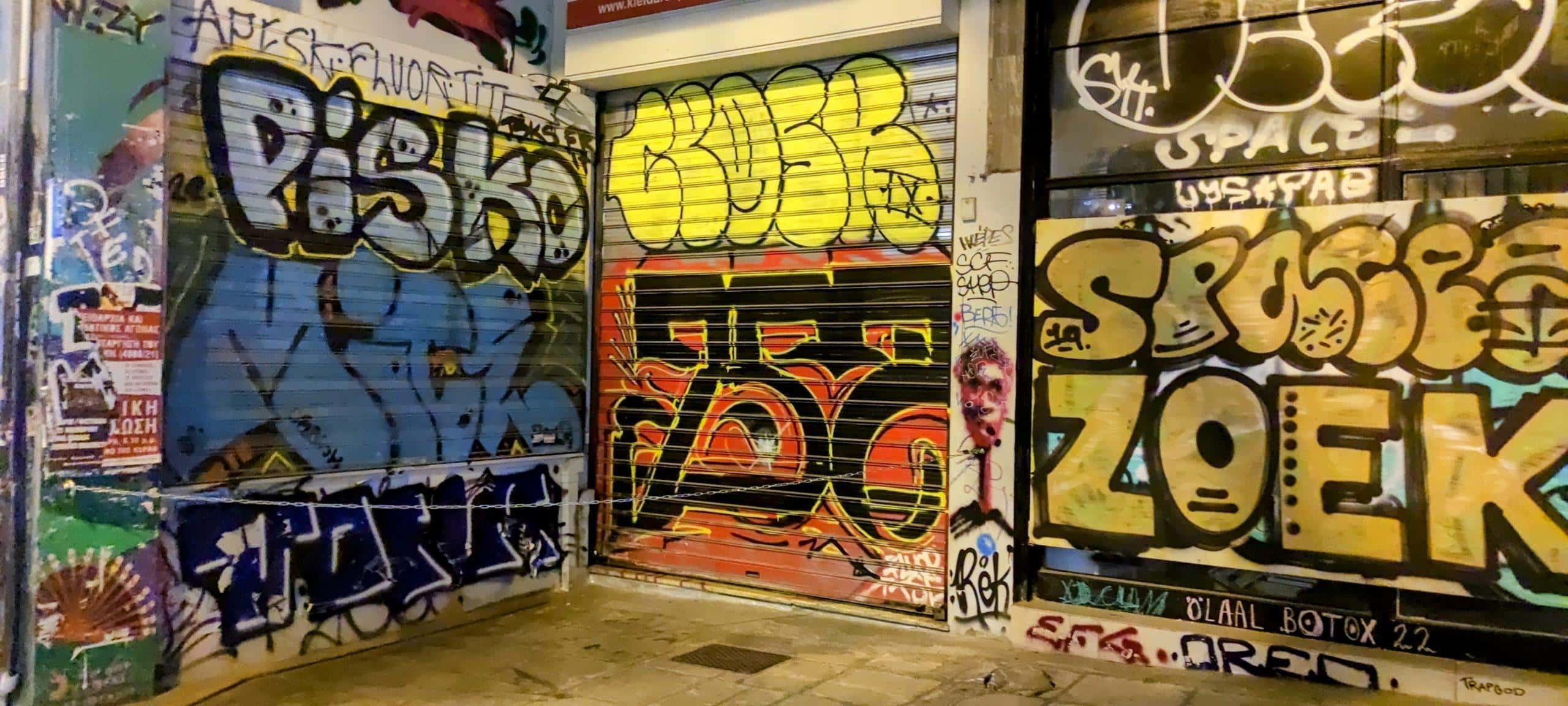





History of Exarcheia
The area took its name from a 19th century businessman named Exarchos, who opened a large shop there. Surrounded by university buildings, the area has long been at arms with the establishment. In 1973 Exarchia was at the centre of the Athens Polytechnic uprising. Students occupied the Athens Polytechnic University in protest of the Greek military dictatorship. On 17th November the Greek military raided the university, with a tank crashing though its gates, killing 40 civilians.
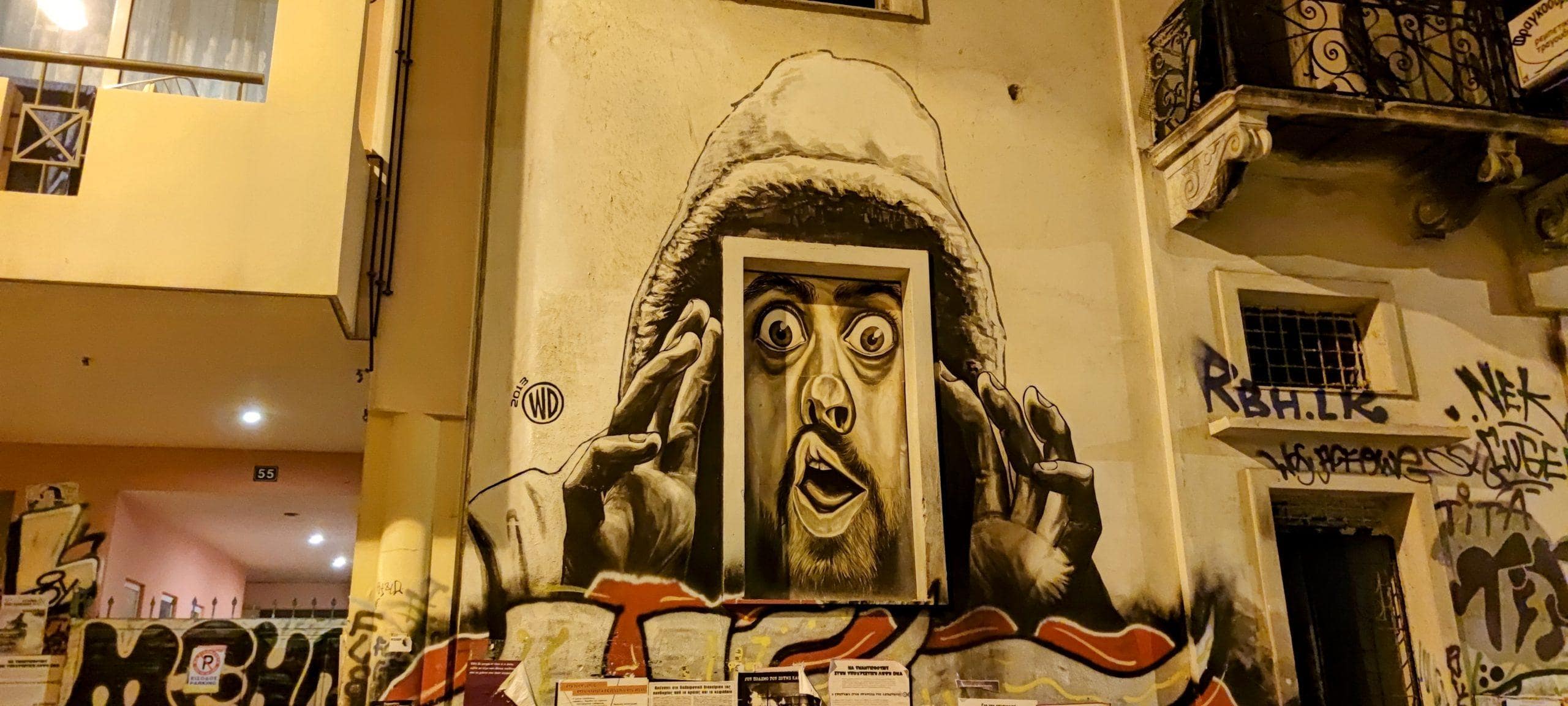



The right-wing dictatorship eventually collapsed in 1974, partially thanks to the Athens Polytechnic uprising. The 17th November is now marked as a public holiday for universities and academic institutions in Greece, and the events resulted in the passing of the Academic Asylum Law, which designates university campuses as off-limits to police and military personnel. This law has contributed to Exarcheia being a political and liberal hotbed, being a safe haven from police.
The 2008 Greek Riots began in Exarcheia, after a Greek police special guard shot and killed 15 year old Alexis Grigoropoulo. The killing of this young student led to large protests, which escalated into rioting, including Molotov cocktails being thrown at police. These riots spread throughout Athens and across other cities in Greece, with younger generations being frustrated with economic problems and unemployment in the country. A shrine to the 15 year old still exists within the area today.
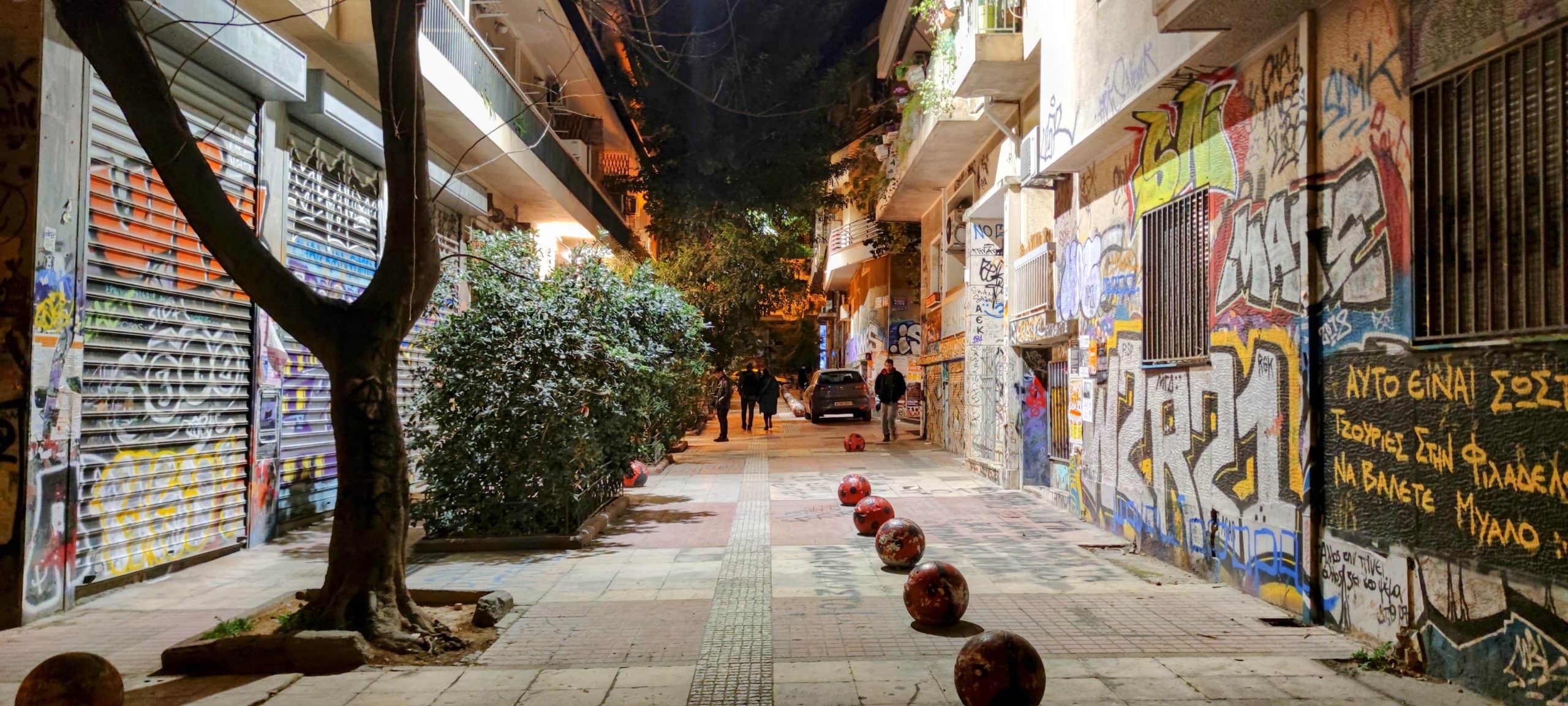



In recent years, empty buildings have been used to house refugees in the area. Up until 2019 there were 23 anarchist and refugee squats in Exarcheia. Thousands of refugees moved to the area, with community-led programmes providing healthcare and social centres. The area’s relative autonomy from the establishment and policing provided a sanctuary for these activities to continue unhindered until recently.
Crackdown
Up until a change in Greek government in 2019, police did not generally enter Exarcheia, with a policy of keeping residents in by patrolling the outskirts of the district rather than entering it. The New Democracy Government promised to “restore law and order” in Exarcheia, and announced plans to destroy the area’s squats and crackdown on its lawlessness. Seven squats were dismantled within the first two months of the new government. Authorities have also cracked down on the drug industry in the area, and street lighting has been added in an attempt to “clean the neighbourhood up.”
Though not as self-governing or independent as a few years ago, the area is still distinctly different from the rest of Athens. Skirmishes between residents and police still occur regularly. During our 2022 visit there were still squats and a rebellious political feel. The place felt generally safe despite its outside appearances and reputation. There are plenty of unique and trendy bars and artsy cafes, street art to admire, and friendly residents with stories to tell. Posters advertise activist meetings for campaign groups and thought-provoking political murals can be found on every wall. Exarcheia is a creative and liberal place, it’s well worth venturing off the beaten track of the main tourist streets of Athens and getting a feel for the liberal heart of the city.
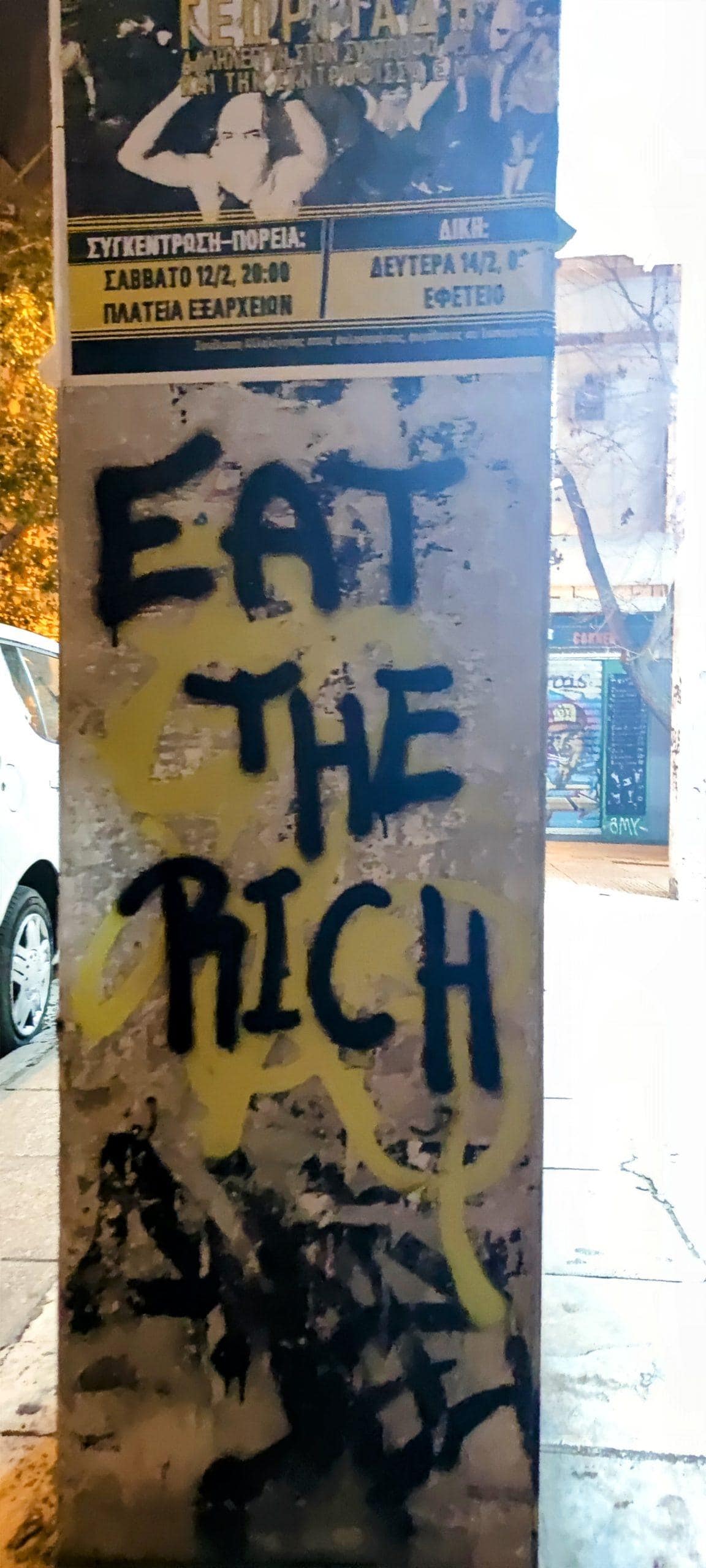




Last Updated on 4 April 2022 by Michael
